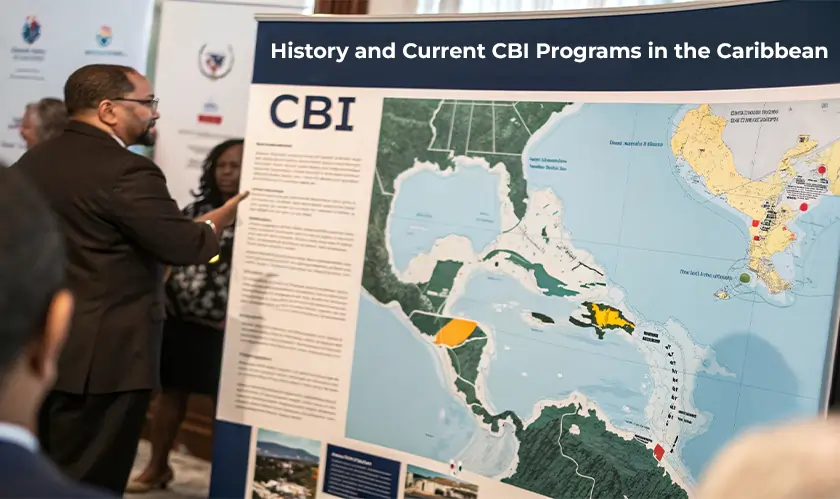Home Industry Travel and hospitality History and Current CBI Progra...
Travel And Hospitality

CIO Bulletin
08 March, 2025
The origins of Citizenship by Investment (CBI) programs go back to the Caribbean, an idea born out of economic necessity. Understanding how these global initiatives impact businesses and individuals offers a fresh perspective on international development.
The history of Citizenship by Investment in the Caribbean region started in 1984, when St. Kitts and Nevis, transitioning from an economy reliant on sugar exports, sought alternative ways to attract foreign capital. The program meant that the investors would contribute to the country's economy and receive citizenship in exchange, which was a win-win scenario for both parties.
Following St. Kitts and Nevis, other Caribbean nations launched their programs. Over the years, CBI programs have evolved significantly. Initially, their goal was raising and generating revenue to stabilize and grow economies, but they now play a wider and more vital role in developing these countries. Funds raised thanks to these CBI programs are used to finance hotels and infrastructure projects. For example, Dominica used CBI proceeds to rebuild areas affected by Hurricane Maria in 2017.
Caribbean nations continuously strengthen their programs, implementing rigorous background checks and making the process more streamlined and transparent. Below is a brief snapshot of the current CBI programs in the Caribbean:
Antigua and Barbuda’s Golden Passport program lets applicants either donate US$230,000 to a state fund or invest in real estate starting at US$325,000. It’s a family-friendly option, with business investment opportunities and both joint and individual options available. The process is simple, typically taking 3-4 months. New citizens must spend just five days in the country within the first five years.
Dominica’s Citizenship by Investment program allows you to donate US$200,000 or make an equivalent real estate investment. The process takes around 3-4 months, and there’s no requirement to live in the country, making it a hassle-free option.
Grenada’s citizenship program provides visa-free or visa-on-arrival access to over 140 countries. To qualify, you can donate US$235,000 or invest in real estate starting at US$270,000. Applications are processed smoothly in 4-6 months, and investments are made only after approval. Physical residency is not required.
Saint Lucia’s Citizenship by Investment program allows access to over 140 countries without a visa or with visa-on-arrival. You can qualify with a US$240,000 donation or a US$300,000 real estate investment. The application process, which takes 4-6 months, has no physical residency requirement.
In St. Kitts and Nevis, you can qualify with a US$250,000 donation or a real estate investment starting at US$400,000. There’s no physical residency requirement, and approval typically takes 4-6 months.

Insurance and capital markets







